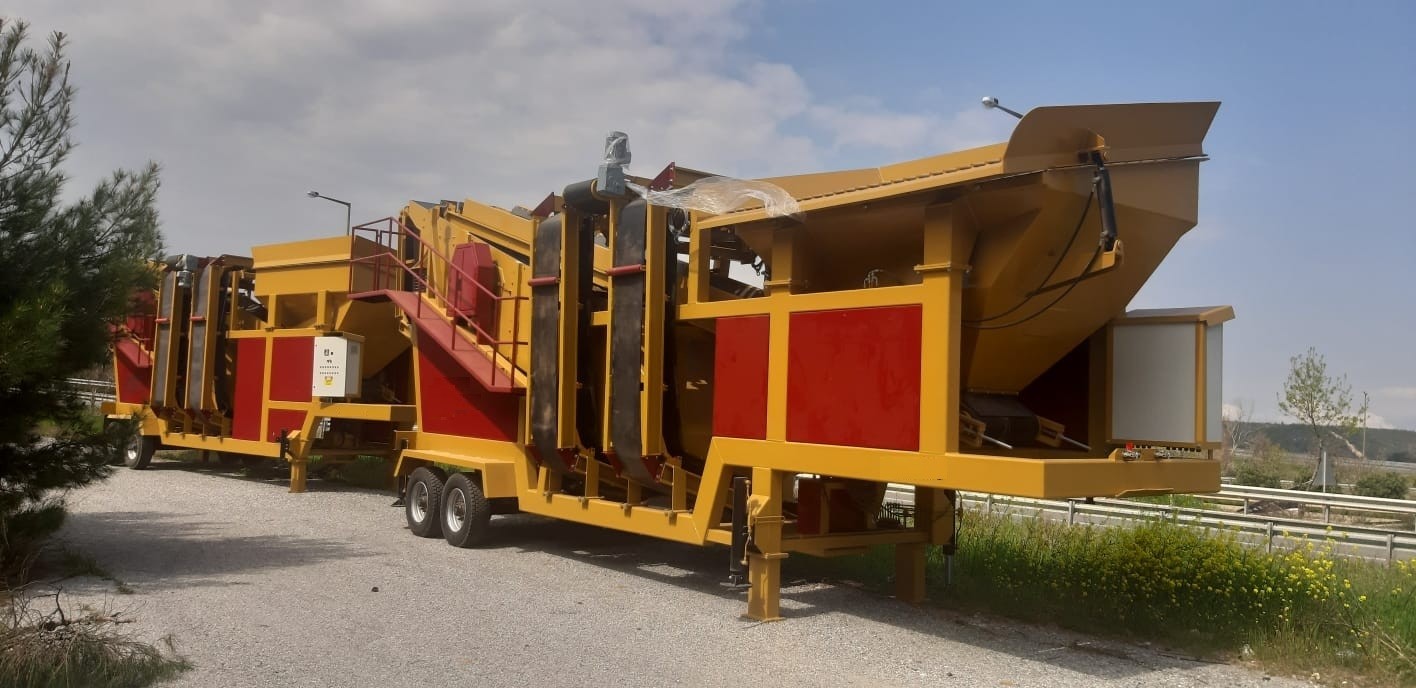The mobile crushing, grinding, and screening plant, also known as a mobile crusher unit, is a high-efficiency, portable, and compact facility used in mining sites, quarries, construction, and recycling industries. These mobile units offer ideal solutions especially for short-term projects or companies operating in multiple locations.
1. Definition and General Purpose
Mobile crushing and screening plants allow for on-site processing of raw materials such as ores or stones. These systems are typically mounted on a truck or trailer and can be easily relocated from one location to another. Unlike stationary plants, mobile systems have low infrastructure costs and offer fast setup and dismantling advantages.
2. Main Components
The mobile crushing and screening units consist of:
-
Primary Crusher (Jaw Crusher): Breaks large rocks into smaller pieces.
-
Secondary Crusher (Cone or Impact Crusher): Further reduces medium-sized stones.
-
Screening Unit (Vibrating Screen): Separates materials into various sizes.
-
Feeder: Ensures smooth material flow into the system.
-
Conveyor Belts: Transfers material between stages.
-
Control Panel and Automation: Central system control and monitoring.
3. Areas of Use
-
Mining: On-site processing of minerals like gold, copper, and iron ore.
-
Quarries: Crushing of limestone, basalt, granite, and other natural stones.
-
Construction Projects: Production of aggregate for roads, bridges, and buildings.
-
Recycling: Crushing of concrete, asphalt, and construction debris for reuse.
4. Advantages
-
Mobility: Easily transportable to various sites.
-
Time and Cost Saving: Quick installation and low operating costs.
-
Flexibility: Adjustable configurations for different production capacities.
-
Eco-Friendly: Equipped with dust suppression and low energy consumption systems.
5. Capacity and Performance
Mobile units are available with capacities ranging from 50 tons/hour to 500 tons/hour. Custom configurations are available to meet client-specific needs.
6. Technical Maintenance and Safety
Regular maintenance is crucial for optimal performance. The units are equipped with safety sensors, emergency stop systems, and remote control features to ensure operator safety.
 English
English
 Le français
Le français
 Türkçe
Türkçe

